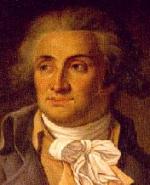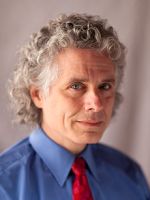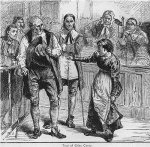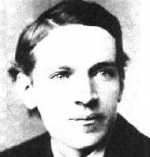This Week in Freethought History (September 15-21)
Here’s your week in Freethought History. This is more than just a calendar of events or mini-biographies – it’s a reminder that, no matter how isolated and alone we may feel at times, we as freethinkers are neither unique nor alone in the world.
Last Sunday, September 15, but in 1857, future 27th president William Howard Taft was born. The son of a Unitarian, Taft graduated from Yale and practiced law in Cincinnati. President William Henry Harrison appointed him Solicitor-General, and in 1800 made him a judge of the United States Circuit Court at age 34. From this position, in 1900 he was appointed first Governor-General of the Philippine Islands. There, Taft peacefully settled the “Friar Question” by negotiating with the Catholic Church to buy out some church-owned land to distribute to native Filipinos. This angered anti-Catholic bigots who would rather have seen the government expel the owners with force. The Republican Party nominated Taft to oppose William Jennings Bryan in the 1908 elections. Bryan latched onto Taft’s Unitarianism – a belief that God is not subdivided into three parts but is a unitary whole – and declared that “the American people would never elect a man President who disbelieved in the virgin birth and the divinity of Christ.” Nevertheless, it was Bryan’s third defeat for the presidency. Taft lost his re-election bid, but happily served as Professor of Law at Yale University until President Harding made him the 10th Chief Justice of the United States, a position he held from 1921 until just before his death. He believed the Supreme Court appointment, not the Presidency, his greatest honor. President Taft was a believer, but never pushed his religious views. Shortly before his death in 1930, he addressed the congregation of the All Souls Unitarian Church, saying, “After all, when you come to the end of your life, the only comfort, the only real satisfaction you have is in the good you have done for others.”
Last Monday, September 16, but in 1498, Spanish Dominican friar and first Grand Inquisitor, Tomás de Torquemada died in Ávila. Born on a date uncertain in 1420, as a young Dominican friar Torquemada became confessor to the future Queen Isabella. In 1483, the Pope left Torquemada in complete charge of the Spanish Inquisition, which had been established five years earlier. Never had a man so enjoyed his work! Torquemada developed and employed an elaborate network of spies and secret police to root out heresy. His favorite methods for extracting confessions, which all but the Catholic Encyclopedia would call torture, were to hang the accused by the arms so that the arms were pulled from their joints, to force the swallowing of gallons of water, and to have the joints dislocated on the rack. In his 15 years as God’s enforcer of orthodoxy in Spain, Torquemada had over 2,000 heretics burned by auto-da-fé, and perhaps 9,000 punished in other ways. The Catholic Encyclopedia tries to mitigate Torquemada’s cruelty, saying, “Whether Torquemada’s ways of ferreting out and punishing heretics were justifiable is a matter that has to be decided not only by comparison with the penal standard of the fifteenth century, but also, and chiefly, by an inquiry into their necessity for the preservation of Christian Spain.” In other words, Torquemada’s torture was excusable because Almighty God was too shy to oppose the savagery of the age!
Last Tuesday, September 17, but in 1743, French philosopher, mathematician, and early political scientist, Marquis de Condorcet was born. Though educated at Jesuit Colleges, Condorcet became, in the words of the Encyclopedia Britannica, “a zealous propagator of the religious and political views then current among the literati of France.” He was friends with Voltaire and the Encyclopedist Denis Diderot. When the Revolution engulfed France, Condorcet fully espoused the Republican cause and became Secretary of the Legislative Assembly. His thoughts on education, still in force in France today, could be useful in the U.S.: “Regardless of the subject, the public authority can have no right to authorize the teaching of opinions as truths; it must impose no beliefs. … Above all, it should be done by assuring good minds the means of avoiding these errors and recognizing all their dangers.” In other words, he advocated teaching critical thinking skills. Condorcet defended human rights in general and remained an implacable foe of clerical interference in politics, arguing that the evils of life stemmed from a conspiracy of priests and rulers against the people, and that bad laws and institutions inevitably followed.
Last Wednesday, September 18, but in 1954, Canadian-born experimental psychologist and popular science writer Steven Pinker was born. In his popular books, he has argued that language is an “instinct” or biological adaptation shaped by natural selection. He is the author of six books for a general audience, including The Language Instinct (1994), The Blank Slate (2002) and The Better Angels of Our Nature (2011). Pinker received the American Humanist Association’s 2006 Humanist of the Year award for his contributions to public understanding of human evolution and the 2010 George Miller Prize from the Cognitive Neuroscience Society. Pinker has said, “I was never religious in the theological sense… I never outgrew my conversion to atheism at 13, but at various times was a serious cultural Jew.” In How the Mind Works (1997), Pinker says, “For anyone with a persistent intellectual curiosity, religious explanations are not worth knowing because they pile equally baffling enigmas on top of the original ones. What gave God a mind, free will, knowledge, certainty about right and wrong? How does he infuse them into a universe that seems to run just fine according to physical laws? … As the Yiddish expression says, ‘If God lived on earth, people would break his windows.’”
Last Thursday, September 19, but in 1692, during the Salem Witch Trials in Massachusetts colony, sentence was carried out on Giles Corey that he be pressed to death for witchcraft. Corey was a prosperous farmer and a church-going member of the community, but because he had allied with the wrong local family and crustily criticized the witchcraft proceedings, in April of 1692 he was accused of witchcraft. The legal system was such that Corey knew he was finished as soon as he was accused, so his only concern was the preservation of his property. Corey refused trial because, without a trial and conviction, his farm could not be forfeit to the colony and would instead be passed to his heirs. The pressing lasted for two days, until the 80-year-old Corey finally died of suffocation. The magistrate stopped the torture occasionally in order to hear anything Corey might wish to confess. “More weight,” was all Giles Corey would say. The Salem Witch Trials occupied less than one year of American history, but torture has always been effective in extracting confession; less so for extracting the truth. However, once the churches lost temporal authority, they lost the power to torture opponents and could only argue with them. Civilization thereby advanced.
Yesterday, September 20, but in 1878, American muckraking author Upton Sinclair was born in Baltimore. In a 67-year career, Sinclair published over 90 books, mostly novels with a social reform theme. His two great heroes were Jesus Christ and Percy Bysshe Shelley, one a Jewish iconoclast, the other an Atheist. His most famous book, The Jungle (1906), an examination of the filthy conditions of Chicago meat-packing plants, launched him to nationwide celebrity. In all his Socialist writings, Sinclair had few kind words about religion. In The Profits of Religion (1919), Sinclair wrote, “Wherever belief and ritual have become the means of livelihood of a class, all innovation will of necessity be taken as an attack upon that class, it will be literally a crime – robbing the priests of their age-long privileges. … It is a fact, the significance of which cannot be exaggerated, that the measure of the civilization which any nation has attained is the extent to which it has curtailed the power of institutionalized religion.” Today, September 21, but in 1866, English novelist and social reform writer H. G. Wells was born. He studied biology under Thomas Henry Huxley, but turned to literature. Wells’s wide-ranging intellect would not be confined to one area and he delved into history, social criticism, and (naturally) science fiction. He was the author of The Time Machine (1895), The Island of Dr. Moreau (1896), The Invisible Man (1897) and War of the Worlds (1898). Although Wells used caustic language about the Christian idea of God in his earlier works, he had an open-minded belief in a “divine will.” This led him to observe, perhaps too hopefully, “Indeed Christianity passes. Passes – it has gone! It has littered the beaches of life with churches, cathedrals, shrines and crucifixes, prejudices and intolerances, like the sea urchin and starfish and empty shells and lumps of stinging jelly upon the sands here after a tide … But in the hearts of living men, what remains of it now? Doubtful scraps of Arianism. Phrases. Sentiments. Habits.” H. G. Wells died an atheist in 1946, having said, “I do not believe in the least that either the body of H. G. Wells or his personality is immortal.”Other birthdays and events this week—
September 18: American expatriate film director Roman Polanski was born (1933).
We can look back, but the Golden Age of Freethought is now. You can find full versions of these pages in Freethought history at the links in my blog, FreethoughtAlmanac.com.








